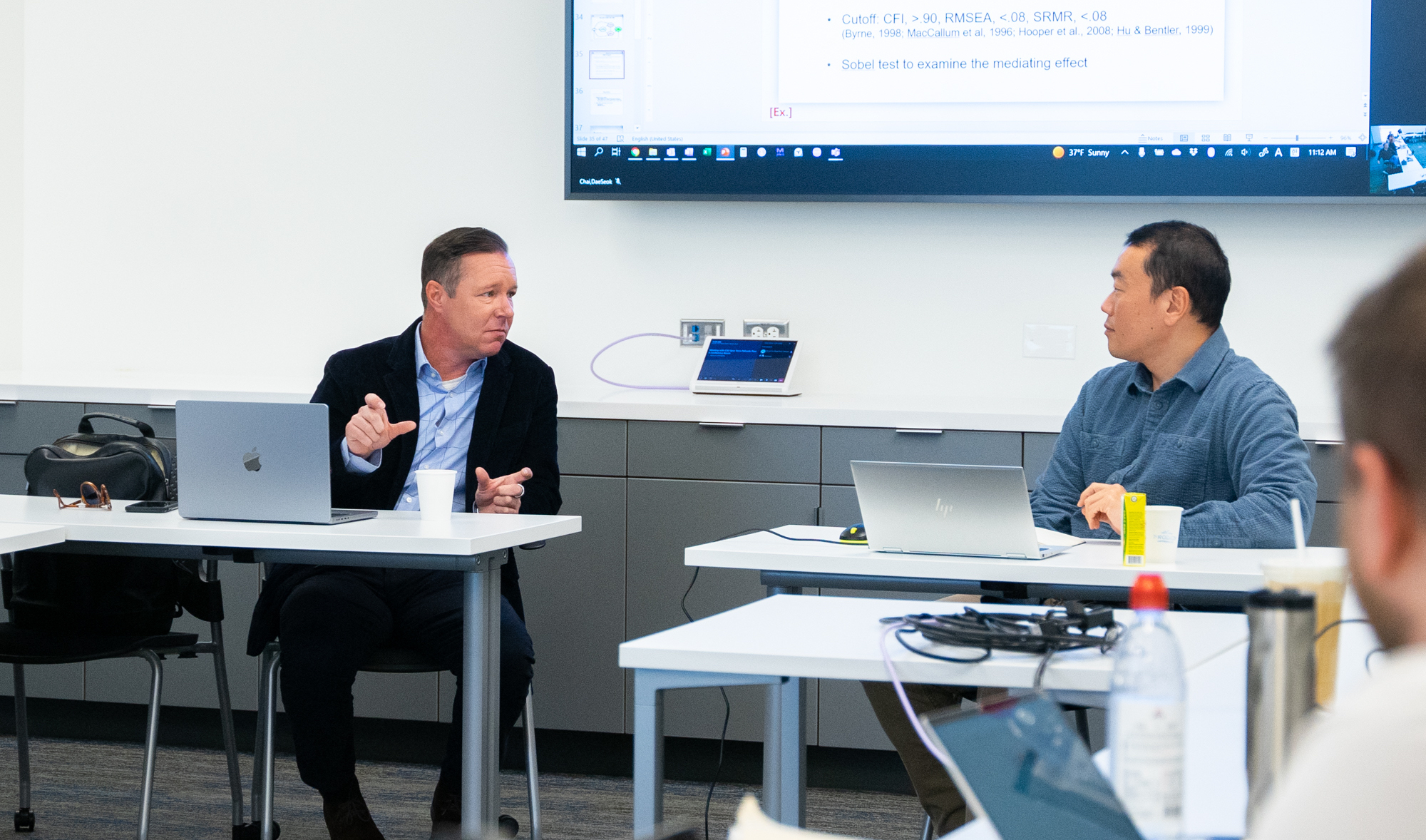
When some hear the name CSU Spur, they may picture K-12 field trips, agriculture and veterinary care, but it is also home to an increasing number of graduate programs for working professionals.
They include the Agribusiness & Food Innovation Management master’s program, a Construction Management certificate program and a master’s degree in Social Work that starts at CSU Spur in January.
Another is the Organizational Learning, Performance and Change Ph.D. Program, an in-person Ph.D. program that is attracting students from around the country. It meets on alternating Saturdays at CSU Spur. Students take two courses each semester (8 a.m. to noon for the first, 1-5 p.m. for the second) over eight consecutive semesters, followed by preliminary exams and dissertation research.
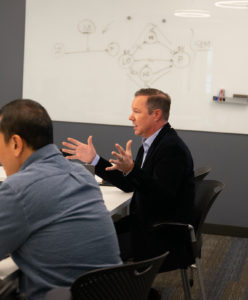
Advancing careers
“The program is designed to serve working professionals in training, learning and development, organizational change, change management and related functions who want to advance their careers,” said Tom Chermack, the School of Education professor who runs the OLPC Program.
“Year one includes what we call content courses, which include an overview of the field, workforce development, scenario planning, systems leadership, evaluation and assessment, and socio-political aspects of the workplace,” Chermack explained. “The second year of coursework focuses on the philosophy of social science research, quantitative and qualitative research methods, and special courses designed to prepare students for exams and dissertation research.”
Chermack noted that most Ph.D. students in the program either gain a promotion in their workplace or are recruited from other organizations.
“This is usually due to their natural motivation and their abilities to apply what they have learned in our program, or to the networking aspects of a face-to-face Ph.D. program that connects them with like-minded professionals,” he said. “From there, the options open up quickly.”
Chermack added, “While all our graduates are skilled enough to be candidates for university research professor positions, most of our graduates remain in practice, having gained the skills to understand workforce issues more deeply and address them.”
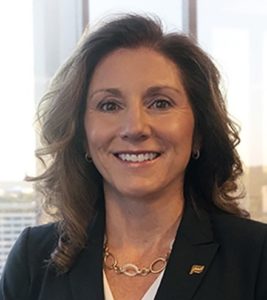
One executive’s experience
Tamria Zertuche, chief operating officer of Ferrellgas, is one of those. She holds an online MBA from CSU’s College of Business and is now finishing her dissertation in the OLPC program.
She recalls Chermack visiting one of her MBA classes several years ago to talk about scenario planning – on a Saturday, and a home football game day no less.
“And that was very representative of what I think makes CSU so successful, that people are involved and care about what’s outside of their silo,” she said. “I saw that he headed up the OLPC Ph.D. program, I researched it, and really felt it was a good match for what I wanted to do, which was continue to grow in my career path in corporate America. I could see how a COO could really utilize this program.”
Flying in from N.C.
Scenario planning turned out to be the topic of her dissertation. She was able to learn and apply scenario planning in an organization through a course focused on real-world application.
Zertuche, who lives in Winston-Salem, North Carolina, flew to Denver every other Saturday to attend the OLPC classes. She’d leave on a 6 a.m. flight from Charlotte to Denver, and then return that night on a 1 a.m. flight back to North Carolina. It was not easy.
However, she said the program has helped her become an effective chief operations officer.
“My undergraduate degree filled in the ability for me to become operationally sound,” Zertuche said. “Then the master’s degree allowed me to move through management, and to me, the Ph.D. allowed me to become a COO.”
As one example, she said the program teaches students about alternatives to the traditional top-down, hierarchical corporate structure.
“That doesn’t really work,” Zertuche said. “You can’t really grow because you can only grow as fast as the person at the top can throttle things.”
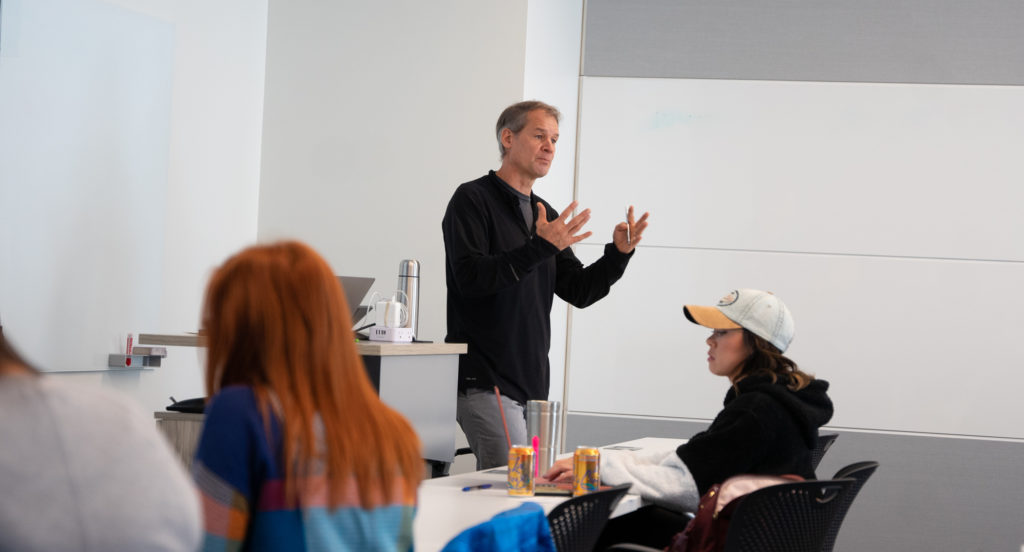
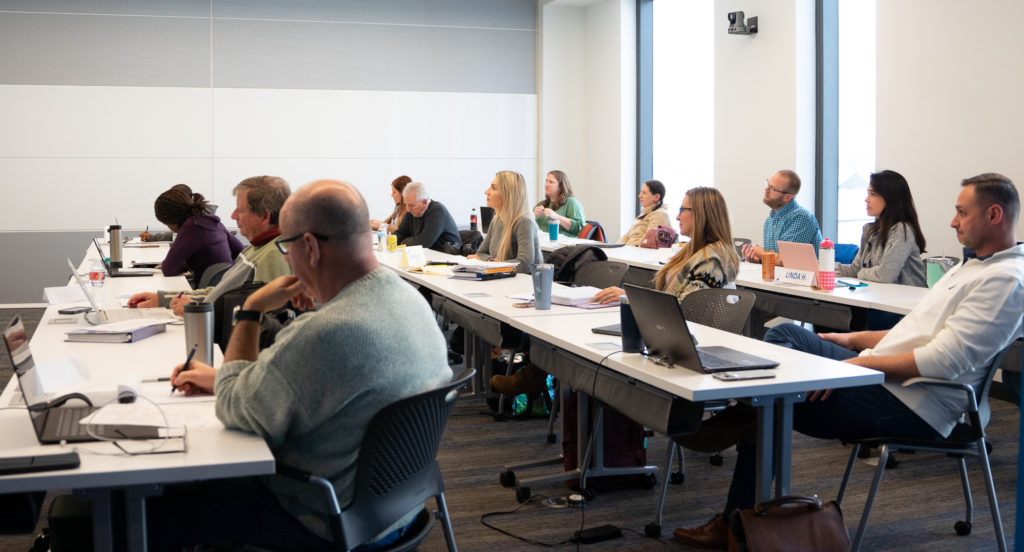
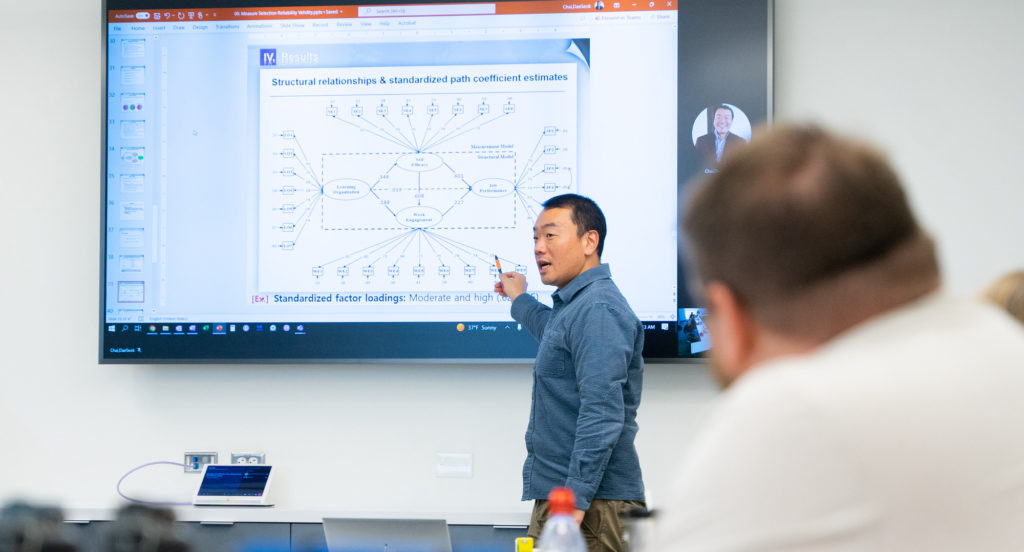
A model with broader involvement
An alternate structure, which can be applied to individual challenges or projects, is a “matrix organization” in which there is representation from various employees involved, at all levels. Using a football metaphor, she said improving an offensive line’s play would require the involvement of offensive linemen, defensive linemen and even the quarterback, not just the offensive coordinator.
She said she chose CSU for her master’s and Ph.D. because she was looking to expand her network in the West and wanted practice-based programs that she could apply to her career, and CSU kept popping up in her research.
Zertuche lauded the OPLC faculty and the relationships she’s forged as she and her classmates have experimented with what they’ve learned, sharing results throughout the program.
“The faculty of the OLPC program are uniquely invested in each of us individually,” she said. “It wasn’t a cookie cutter approach at all. It was a customized approach to our learning.
“And when you’re in a classroom and you’re learning something, and you come back together two weeks later and someone says, ‘Hey, that thing we talked about last time, I went ahead and I applied it in my finance organization, and this is what’s happening.’ That’s pretty fantastic because you get to learn through someone else’s testing.”
Chermack concluded, “Overall, the program seeks to honor the land-grant mission, community outreach and engaged scholarship priorities of Colorado State University and the ability to serve the business community here in Colorado and beyond.”
For more information about the program, visit online.colostate.edu/degrees/olpc-phd.